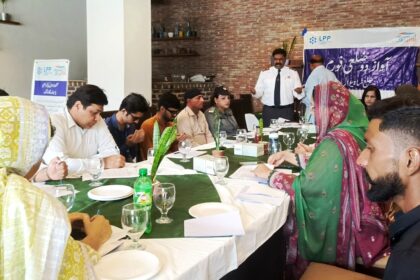WFP Pakistan, in coordination with the National Disaster Management Authority Pakistan and EU Civil Protection & Humanitarian Aid, convened a national consultation on Anticipatory Action to strengthen the country’s capacity to protect lives and livelihoods from climate-driven disasters. The meeting drew over 80 participants from government institutions, UN agencies, donors, academia and civil society, reflecting broad interest in proactive risk management.
The dialogue emphasised the need for early-warning systems that reliably reach communities in time to act, an essential component of effective Anticipatory Action. Participants discussed how technology, community networks and clear communication protocols can ensure warnings translate into lifesaving local responses.
Improving data sharing across institutions featured prominently as a way to speed decision-making and target assistance more effectively. Delegates explored mechanisms to streamline information flows between national and provincial authorities as well as humanitarian and development partners so Anticipatory Action triggers can be evidence-based and timely.
Ensuring financing mechanisms can release support ahead of a crisis was highlighted as critical to moving from plans to action. Stakeholders considered options for pre-arranged funding and rapid disbursement tools that enable assistance to reach vulnerable households before hazards fully materialise.
Strengthening local preparedness so action is swift and effective rounded out the practical priorities, with a focus on training, contingency planning and empowering local responders. The national consultation will be followed by provincial-level sessions to engage local authorities and communities, ensuring the emerging Anticipatory Action strategy reflects on-the-ground realities and priorities.
FAO Pakistan and the Sustainable Development Policy Institute (SDPI) participated in the discussions alongside other partners, signalling a coordinated approach across sectors as Pakistan advances work on anticipatory, anticipatory financing and locally led preparedness measures.











